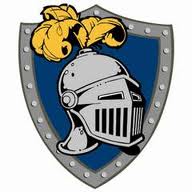The St. Michael-Albertville school district recently won a grant that has allowed them to hire a full-time elementary school counselor. The new counselor, Jodi Acker, started working for the STMA district at the end of November and will split her time evenly between Big Woods and Fieldstone Elementary schools.
While every building has social workers, Superintendent Dr. Ann-Marie Foucault said the elementary schools do not have counselors. The new counselor will mostly work with general education students, since special education students already have access to student services through the district’s social workers. The district has seven other counselors, three at the middle school level and four at the high school.
 Acker, who is a licensed K-12 school counselor through the state of Minnesota, said she will be working with students in whole class settings, small groups and individually. She will be putting together short lessons on a range of topics such as conflict management, friendships or study skills and giving teachers the opportunity to sign their class up the lessons. Acker will also be giving more personalized attention to small groups of students or individual students. Teachers and parents can contact her if they feel a student could benefit from some time with a counselor, and she will work with them to provide academic or social/emotional support.
Acker, who is a licensed K-12 school counselor through the state of Minnesota, said she will be working with students in whole class settings, small groups and individually. She will be putting together short lessons on a range of topics such as conflict management, friendships or study skills and giving teachers the opportunity to sign their class up the lessons. Acker will also be giving more personalized attention to small groups of students or individual students. Teachers and parents can contact her if they feel a student could benefit from some time with a counselor, and she will work with them to provide academic or social/emotional support.
Foucault said that she would have ideally liked to have counselors at all elementary sites, but due to the grant’s limited dollars she applied for counselors at Big Woods and Fieldstone because those schools’ demographics fit the demographic requirements of the grant better than St. Michael Elementary. She said the school district partners with Solutions Counseling in St. Michael to help students access counseling services when needed, and noted that in future years she would like STME’s social workers to spend some of their time working with general education students.
The Minnesota Legislature allocated $12 million for school support staff in 2016, and these new resources have resulted in additional school counselors, psychologists, social workers, chemical dependency counselors and school nurses in 77 schools across the state. While over 100 school sites applied, the grant program gave priority to districts where student support services personnel positions do not currently exist.
The grant program will help to provide funding for these new positions for six years. The state matches local money for the new positions dollar for dollar over the first four years, then school districts will match $3 for every state dollar during years five and six.
“Minnesota ranks nearly last in the United States – providing only 1 counselor for every 792 students. That’s more than three times the recommended ratio,” said Minnesota Lieutenant Governor, Tina Smith. “These grants will help more Minnesota students receive the support they need for success in school and life.”
State representative Alice Hausman, who worked to get the funding through the legislature, also pointed out that Minnesota spends half the national average on student services. She said 2.6 percent of Minnesota’s education funding goes toward student services, while the national average is 5.5 percent.
“We are very excited that we were awarded these two grants,” Foucault said. “They will help us meet the social/emotional needs of our students by removing barriers to learning to promote academic achievement.”
As for Acker, she is looking forward to working as a team with teachers and parents to help kids overcome whatever challenges they are having so they can experience success in the classroom and with their peers.
“Hopefully this will provide the kind of support to the general ed. students that they weren’t able to have before,” Acker said. “It’s really my passion to work with families and to help kids.”